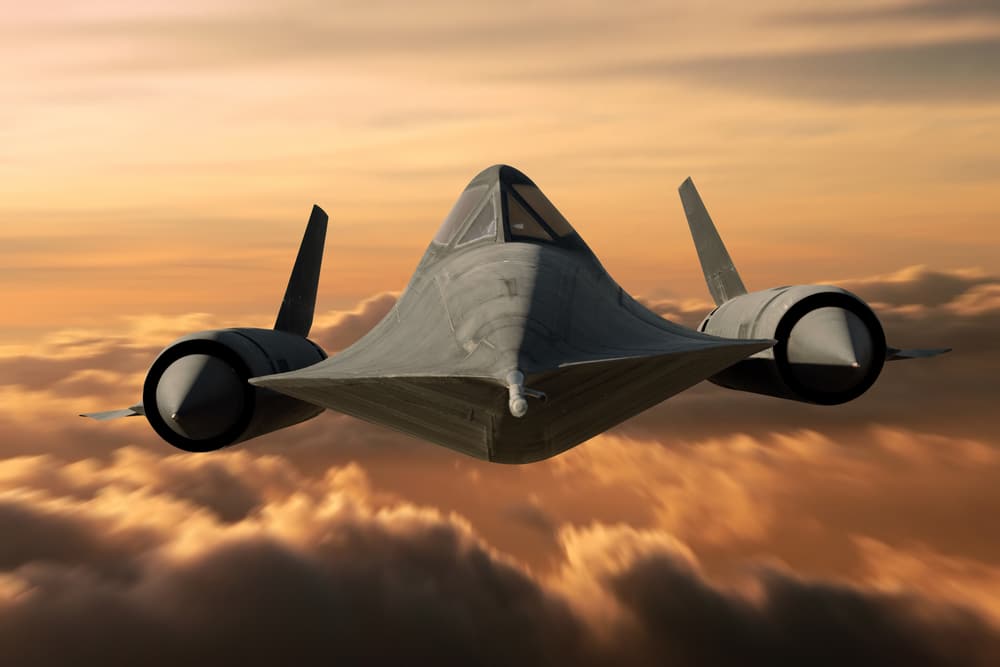Here’s Why the SR-71 Was Actually Designed to Leak Fuel All Over the Tarmac
The SR-71’s Fuel Leakage: Accidental or Intentional?
Esteemed as one of the most advanced spy planes used in the Cold War, the SR-71 is hallmarked for its intense speed, pristine construction, and unrivaled flying capabilities. Designed by Lockheed Martin, the SR-71 was built in response to a CIA request. NASA and the United States Air Force were responsible for operating it, and this impressive aircraft first took flight in December of 1964. Dubbed the “Blackbird,” the SR-71 was crafted for long-range purposes, which allowed it to fly at incredibly high altitudes.
However, there was one design feature that many presumed was a mechanical flaw. When the Blackbird took to the sky, its airframe started leaking, leaving a trail of jet fuel on the tarmac. While many were concerned that this would render the plane useless, the Blackbird was designed to eject its specialized fuel. When developing the aircraft, engineers accounted for the temperature fluctuations that it would experience. More specifically, they realized that the plane’s components would heat up as the aircraft gained more speed.
This friction would inevitably prompt the plane’s body to expand, so they had to fit some pieces together loosely. The fuselage panels, in particular, were purposely positioned farther apart. These loose-fitting parts are what produced the leakage, but it was a necessary design quality to prevent overexpansion. As the SR-71 reached 2,200 miles per hour, the panels enlarged as expected. Fortunately, there was enough room between them to allow for this inflation.
The leakage was also attributed to the SR-71’s lack of a fuel bladder. With that said, when the plane took off, fuel managed to escape before the airframe could expand. Once again, this proved advantageous. With less fuel, the jet’s tires and brakes could release pressure, creating a safer, steadier, and reliable aviation journey. Though this temporary leakage was necessary, engineers knew that the Blackbird would need to be refueled while in the air.
Otherwise, the high temperatures would create fumes inside the fuel tanks. If neglected, this problem could induce an explosion. It’s for these reasons why aerial refueling was warranted. What’s more, without this vital characteristic, the SR-71 couldn’t fly more than 2,000 miles. Thanks to its refueling abilities, the Blackbird was able to travel more than 12,000 nautical miles.
Though the SR-71 heated up while it took flight, it cooled down while landing. As a result, the panels contracted, causing them to return to their original state. When this happened, the jet’s fuel leaked again. Due to this additional leakage, pilots had to be especially cautious when navigating the tarmac so that the plane wouldn’t slip. If the runway still had fuel on it from takeoff, taxiing the aircraft was even more challenging.
In fact, there was an intense situation that happened in Japan when pilots were landing the SR-71. Due to excess fuel on the tarmac, the pilots had to relinquish control as the plane approached the runway. In true heroic fashion, the ground crew rushed in, placing a chock in front of each wheel to secure the aircraft’s movements. Though the SR-71 lived a long and memorable life, NASA retired the Blackbird in 1999. The SR-71 was a tremendous example of aircraft engineering, and the plane’s quirky attributes will go down in aviation history.
Procure Aerospace Fasteners from AMI
AMI is an AS9100 and ISO:9001 accredited, vertically integrated manufacturer of high strength, close tolerance aerospace pins, bolts, threaded rods, studs, screws, and built-to-print specials. Our clientele includes industry-leading OEMs like Boeing, Bombardier, DLA, General Electric, Lockheed Martin, and Sikorsky.
We are a Philips Screw licensee that specializes in both large and small runs. Whether you need a prototype or large runs for your assembly line, you can rely on AMI for rapid delivery and short lead-times.
Search our expansive inventory or launch your Custom Quote today!





